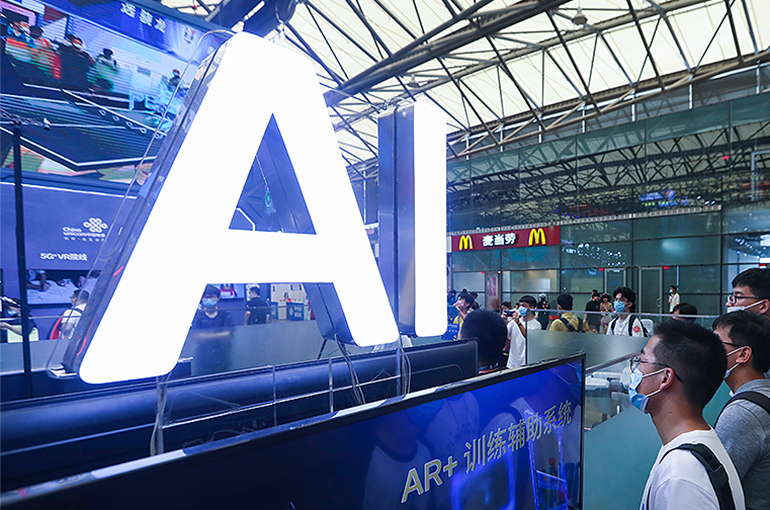 Overseas Demand, AI, Domestic Demand Transition Are Key to China’s Economic Development
Overseas Demand, AI, Domestic Demand Transition Are Key to China’s Economic Development(Yicai) June 25 -- Chinese companies are offered opportunities from the overseas market and artificial intelligence sector but also face great challenges from protectionism in Western countries. Therefore, the Chinese economy is experiencing an inevitable deep transition, especially in its supply and demand structure.
There are two kinds of opportunities that Chinese firms can seize globally: robust overseas demand and the development of AI. Regarding the first, Chinese companies that went global and had a high percentage of overseas sales over the past years have achieved substantial earnings, while those that did not struggled to survive in the domestic market due to the fierce competition.
In addition to boosting economic growth, AI technologies have changed people’s lifestyles, as well as production and work patterns. The new scientific and technical revolution brought about by AI is creating a new Kondratieff wave, guiding the global economy to enter a boom period, and becoming a new economic growth driving force for the next at least 10 to 20 years.
The Chinese economy is also faced with challenges, especially from protectionism in Western countries. Chinese firms planning to go overseas must have sound strategies. They should sell their products at slightly higher prices and pay employees more rather than cutting prices and selling their products at a loss in overseas markets while paying high tariffs.
The Chinese economy is transitioning from the manufacturing to the services sector and from investment to consumption, so the country should not let manufacturing and services clash or raise the proportion of manufacturing.
The role of the services sector of promoting manufacturing and agriculture cannot be ignored. With the development of automation technologies, employment opportunities in the manufacturing and agriculture sectors will drop, and services will become the sector in the highest need of labor force.
China should change from investment-driven to consumption-driven. Reducing low-efficiency investment and hiking resident income and consumption is key to boosting domestic demand. Policies to cut interest rates will ease burdens on companies and drive the economy to pick up.
The private economy accounts for a high percentage of consumption, being the most active in the services sector and contributing the most to employment. Most Chinese innovation companies or those that expanded overseas are, in fact, private firms, so promoting the development of the private economy is advancing China’s economic innovation and transformation.
(The author is Teng Tai, the head of the Wanbo New Economic Research Institute)
Editor: Futura Costaglione